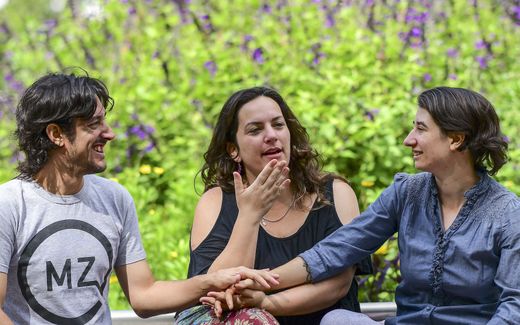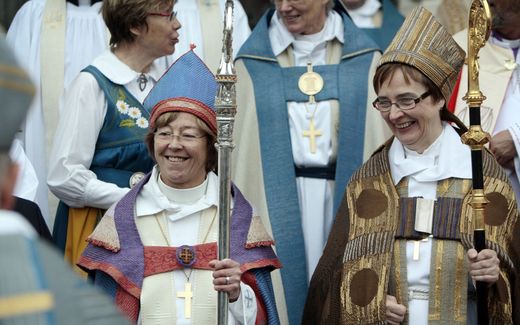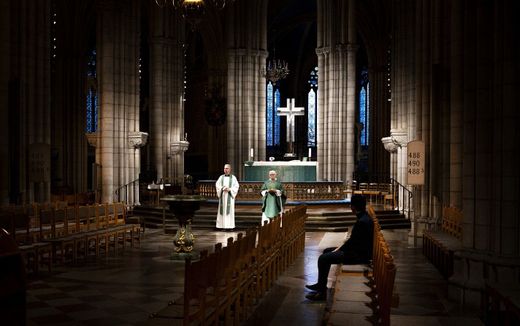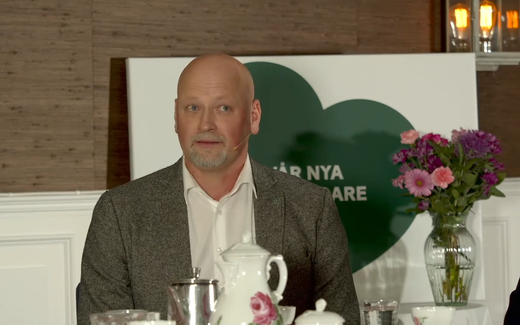Church of Sweden may add same-sex marriages as job requirement
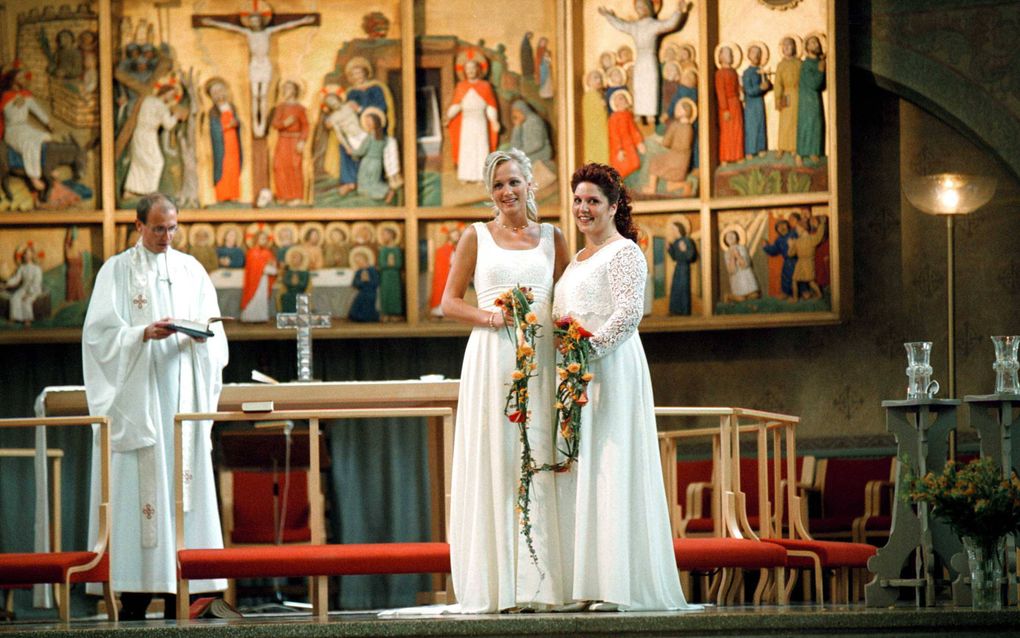
A same-sex wedding at a church in Gothemburg, Sweden. Photo AFP, Larseric Linden, Scanpix Sweden
Northern Europe
What does it mean if the Church of Sweden only employs priests who are ready to perform same-sex marriages? Is that equal treatment for everybody or a denial of freedom of belief for some? The Evangelical Alliance in the country has its concerns.
Stay up to date with Christian news in Europe? Sign up for CNE's newsletter.
It indeed seems that the Church of Sweden is heading towards only appointing priests who are willing to perform same-sex marriages. The exception for priests to marry men and women only might not be extended. "No one is forced to apply for a certain job", the Church says.
That was concluded from a report by the Church of Sweden and the Swedish legal agency Next. The issue concerns prospective priests when they apply for a church position and whether they have the legal obligation to marry same-sex couples. In Sweden, most marriages are performed in the church. Even people who do not attend church usually prefer ecclesiastical marriage over purely civil marriage.
Investigation
This debate has been going on for years. However, the matter escalated when the Church of Sweden consulted lawyers from the legal agency Next and released its conclusions in January of this year. The investigation found no legal consequences when it comes to requiring newly hired priests to marry same-sex couples. The Church could consider such gay marriages as an employment requirement, even if the prospective priests cited personal religious convictions.
Yet Kjell Lejon, a university professor of Church History and Head of the independent church publication Swedish Pastoral Journal (Svensk Pastoraltidskrift) sees the Church's report as "ideologically coloured."
In 2023, the Church of Sweden and Next began the independent investigation. In addition to Next finding "no obstacles in Swedish law," the issue of discrimination against homosexuals was more of a concern than personal religious convictions among the Church's prospective priests, they said in Dagen.
Next, previous rulings from the European Court of Justice were cited, emphasising the "right to equal treatment" over "freedom of religion." As interpreted by Next, the rulings showed that providing "different treatment" when a person's sexuality is considered necessitates "weighty reasons" for opposing such a decision.
The investigation concludes that confronting priests with the question of marrying same-sex couples when they apply for a position is also admissible, as it would not "violate freedom of religion for the job-seeker." However, that situation would have been problematic if the same question had applied to all existing positions within the Church of Sweden. "No one is forced to apply for a certain job," the Church wrote, which was cited in the Dagen report.
CNE contacted the Church of Sweden for comment, but its spokesperson for the investigation, Archbishop Martin Modéus, declined to be interviewed due to availability.
The report's findings have been met with much opposition, including from the Swedish Pastoral Journal's editor-in-chief, Kjell Lejon. Lejon decided to conduct a second legal investigation into the matter, as he found Next's conclusions unsatisfactory.
"There seems to be a theological and canon law slippery slope here," he comments in an interview Dagen.
He also explains that the Church has gone from "blessing same-sex couples" to marrying them and possibly now to making the officiation a job requirement. Kjell Lejon has released the second legal opinion to CNE and his findings in the Swedish Pastoral Journal.
Findings
According to what lawyers Percy Bratt and Joakim Lundqvist found in the second investigation, "there is no obligation for priests in the Church of Sweden to marry couples against the personal convictions about what is right." It also states that "no distinction can be made between those already in the Church and priests going through the recruitment process.
Thus, making the obligation to marry same-sex couples regardless of employment status would make it "discriminatory" because "religious convictions" are discounted from the decision.
Lejon also states that the findings from the first investigation do not follow the Confessions of the Church of Sweden. "It is not even based on any order in the regulations of the Church Order – only on a labour law reasoning based on specific starting points. Nor does it take into account the theological, ecclesiastical and ecumenical complications that could result from a decision to introduce compulsory marriage for same-sex couples for all newly appointed priests," he says in his publication, SPT.
Still, a Church board meeting in 2023 concluded that marriages of same-sex couples should be done with "joy and free will." While there are clear theological contradictions, Lejon adds that only 1.1 per cent of all marriages that are conducted in the Church of Sweden are same-sex. CNE tried to contact Next and its lawyer in charge, Erik Danhard, for comment regarding the findings from the second investigation. Danhard: "Unfortunately, I have nothing else to add to this matter," he says in a written response.
Challenges to religious freedom
The Church of Sweden and Next's findings come when Sweden has undergone other legal cases within its Christian community. The Swedish Evangelical Alliance (SEA) says to Dagen that "religious freedom is being challenged" in the country.
The SEA also asks the UN Human Rights Council for another review of nationwide decisions undermining religious freedom in the country. The last review was conducted in 2020.
The need for blasphemy laws, the push to ban conversion therapy, and funding cuts to churches viewed as cults are a few more issues currently being handled by government authorities, the SEA mentions in Dagen.
In Furuhöjdskyrkan, a church saw part of its funding cut after its pastor preached a critical sermon covering LGBTQ topics. In another case, a Pentecostal church in Västerås has been deemed a "sect" by an authority at the town's municipality. The SEA says that if churches do not share beliefs that are considered "progressive," they are in danger of getting their funding denied once they are attributed as "cults" or "sects."
Related Articles



